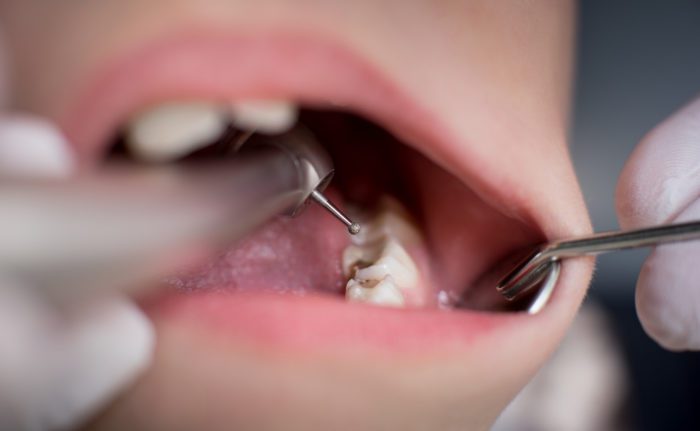Cavities are decayed portions of a tooth. In fact, they are the beginning stage of tooth decay. A cavity starts by affecting the enamel, which is the outer layer of the tooth. The enamel is the protective coating that guards the sensitive inner parts of the tooth. Damage to the enamel requires professional attention in order to slow the decay.
Initially, you may not even have cavity symptoms, making them tricky to spot. If you attend your regularly scheduled dental appointments, your dentist will be able to spot and fix them before they do much damage.
There is a common misconception that only children can get cavities. However, that is not the case. According to the National Institutes of Health (NIH), 92% of adults between the ages of 20 and 64 have had cavities in their adult teeth. This means that most adults will have a cavity at some point in their lifetime. Because cavities begin as minor issues, many people don’t take them seriously.
Cavities do begin as relatively minor issues. However, they can create a lot of damage if left untreated. For tiny, early cavities, it is possible to wait to get fillings. Yet, the longer you wait to get treatment, the worse the decay will become.


Causes of Cavities
People who have diets that are high in sugars or carbohydrates are more likely to develop cavities. This is because the bacteria in your mouth feed on the sugars, turning them into acid. The acids will dissolve the enamel on your teeth, weakening the protective layer.
Additionally, the sugary foods will combine with the saliva in your mouth and create plaque. The plaque will stick to the teeth, continuing the cavity-forming process. If you don’t remove plaque properly, it will continue to build and form cavities. This combination of plaque, acid, food particles, and bacteria can destroy the enamel.
Several factors can cause cavities, such as diet, poor oral hygiene, or certain medical conditions. If you do not brush and floss your teeth as recommended, plaque will continue to build and destroy the enamel. The more sugar that you have in your diet, the more likely you are to get cavities.
Effects of Cavities
While cavities can be relatively mild in the beginning stages, they can grow to cause more severe problems. Without treatment, the decay can continue to burrow into the inner layers of the tooth.
Cavities can create infections within the tooth that can spread to other places in the mouth. Infections can be deadly without treatment. The location of the mouth makes infections particularly dangerous because it is so close to the brain.
Cavities can weaken the structure of the tooth. This can make it susceptible to breaking. Abscesses can form. Finally, tooth decay can eventually lead to tooth loss. A cavity can travel through each layer of the tooth and into the tooth’s root. Unfortunately, this can lead to an eventual tooth extraction.
